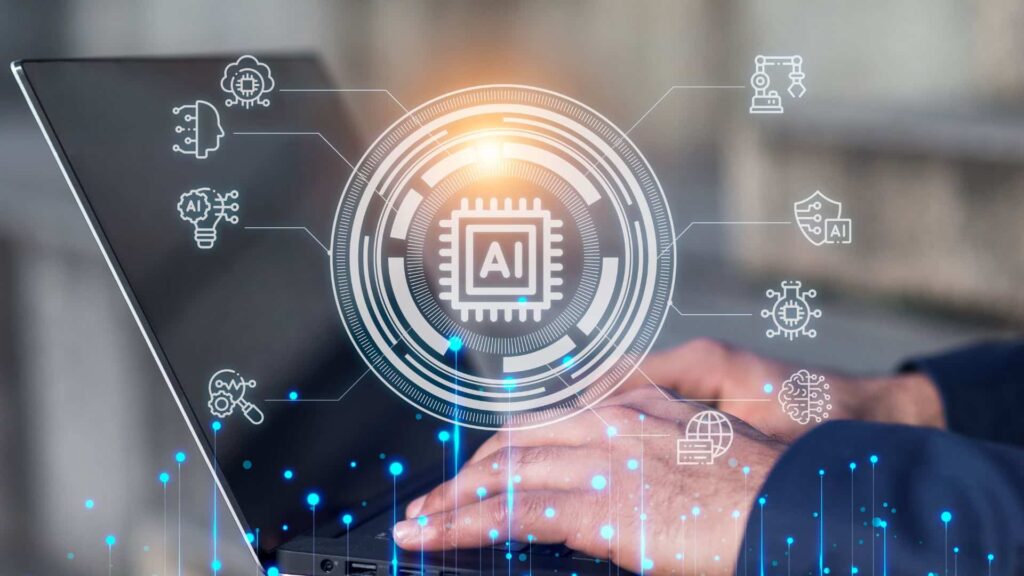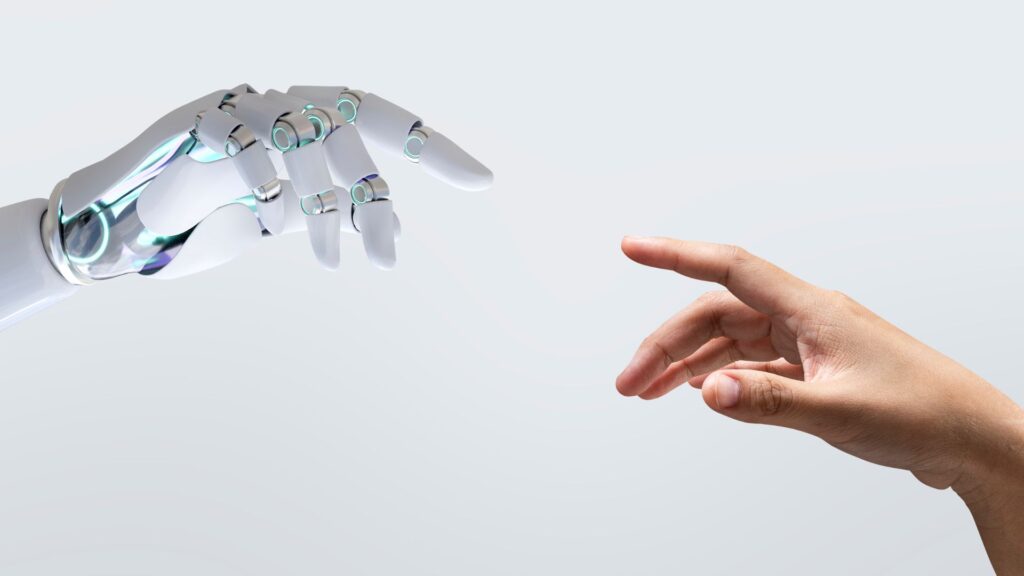The technology known as artificial intelligence (AI) has come to revolutionize many facets of our existence. But as AI develops at a never-Who invented Artificial intelligence? Before-seen rate, worries and conjectures about it taking over the world have also been voiced. We will explore the subject and dispel popular misconceptions about AI taking over humankind in this blog post, highlighting the importance of having a comprehensive awareness of the technology’s potential, constraints, and ethical issues.
1.Understanding the Scope of Artificial Intelligence:
Artificial Intelligence (AI) is the study of creating intelligent systems that are capable of doing activities like speech recognition, decision-making, and problem-solving that normally need human intelligence. Even though AI has advanced remarkably, it is important to understand that existing AI systems are limited or specialized, built to be highly effective in particular fields. The concept of General Artificial Intelligence (AGI) is still theoretical and distant from being realized, despite demonstrating intelligence comparable to that of humans in a variety of jobs.
2. Human Control and Ethical Considerations:
Artificial intelligence (AI) lacks intrinsic goals, desires, or consciousness, despite popular science fiction portrayals to the contrary. AI systems don’t have subjective experiences or objectives; instead, they function primarily on algorithms and data. AI-related ethical issues are related to how we develop, implement, and control its uses. Ensuring accountability, fairness, and openness is essential to responsible AI development in order to reduce any potential hazards or biases.
3. Complementing Human Capabilities:
Artificial intelligence (AI) has the ability to supplement and improve human abilities rather than replace them. Big data processing and analysis, pattern recognition, and insight generation are all areas in which artificial intelligence systems shine. This frees people up to concentrate on higher-order activities that call for imagination, compassion, analytical thought, and difficult decision-making. AI and humans work well together to promote creativity and teamwork in a variety of industries.
4. Limitations and Challenges:
AI has various drawbacks and difficulties. In order to produce reliable results, current AI systems primarily rely on the availability and quality of data, necessitating substantial training. Additionally, biases in the data or the algorithms themselves may affect them. Furthermore, AI is devoid of human-level intuition, contextual awareness, and common sense reasoning. To overcome these obstacles, interdisciplinary cooperation, ethical standards, and continuing research are needed.
5. Importance of Ethical AI Development:
Ethics must continue to be at the forefront of AI development if we want to guarantee that it advances humanity. Regulations, norms, and safeguards are essential for addressing issues with accountability, security, privacy, and transparency. Researchers and organizations are putting a lot of effort into developing ethical AI practices; they emphasize the necessity for inclusive datasets, a diversity of viewpoints, and continual assessments of the social effects of AI systems.
6. Collaboration between Humans and AI:
Instead of an AI-dominated future, humankind and AI will work together in harmony in the future. We can realize the potential of AI for societal good by utilizing its advantages while retaining human control. AI can help with complicated global problems including resource optimization, reducing climate change, and improving healthcare. Working together enables us to navigate the changing environment while utilizing AI as a tool to assist human decision-making and promote creativity.
Even if artificial intelligence has come a long way, the idea that it will take over the world is exaggerated and based on false information. AI as it is now developed and managed by humans is a tool. Its purpose is to supplement, not to replace, human talents. Responsible AI development makes sure that AI is in line with human values and advances societal well-being. It involves ethics, rules, and constant review. We can take advantage of AI’s potential while still having control and direction over its applications if we encourage human-AI collaboration.
Why Artificial Intelligence is Important?
There are numerous ways in which artificial intelligence might enhance our quality of life. For instance, it might improve our comprehension of and ability to react to challenging circumstances. Additionally, it might enable us to make wiser choices. Also, it might facilitate the automation of procedures or jobs.

Artificial intelligence possesses the capacity to significantly transform our way of life and work. The following four factors highlight the significance of artificial intelligence:
1. AI can help us achieve our goals more efficiently and reduce human error.
We can automate procedures and jobs that we would otherwise have to perform manually with the aid of artificial intelligence. We can focus on more crucial things by doing this, which can save us time and money.
Although AI has many benefits, it might also result in employment losses for humans. AI, for instance, can assist companies in automating jobs that employees can complete more swiftly and affordably. Over time, this might result in the loss of more jobs, but it might also lead to the creation of more jobs in industries like business and engineering.
2. AI can help us learn and evolve more effectively.
Artificial intelligence has the potential to improve our ability to learn and retain knowledge. This can assist us in making wiser decisions and promptly adjusting to changes in our surroundings.
3. AI can do dangerous and repetitive tasks
While AI can perform tedious and hazardous duties, it can also enable humans to achieve feats we never would have imagined. AI, for instance, can assist medical professionals in making faster and more accurate diagnoses than human physicians. Additionally, AI can help us handle large data sets more effectively, which can lead to the development of new strategies for reducing crime and boosting the economy.
4. AI is available 24/7 and it works faster than humans
Artificial Intelligence can learn, process, and respond more quickly than humans. As a result, AI-powered applications that can assist us in our daily lives have been developed.

Who invented Artificial intelligence?
The phrase “artificial intelligence” was first used in the 1950s by American mathematician John McCarthy of the Massachusetts Institute of Technology to describe the research and development of intelligent computers. At the time, “machine intelligence” (AI) was still in its infancy and mostly the purview of a small group of visionary and eccentric academics. AI’s major goal at the time was to solve puzzles in a logical setting. But during the last few decades, “AI” has developed into a distinct field of study.
Where AI is used?
AI is being utilized in several industries, including finance and retail. Recently, several products and services have benefited from the application of artificial intelligence. These days, it is applied across several industries to improve and streamline goods and services.
Artificial intelligence is widely used in the banking, insurance, healthcare, art, and entertainment (movies, video games, etc.) industries.
Are Artificial Intelligence and Machine Learning the same thing?
Although the phrases “machine learning” (ML) and “artificial intelligence” (AI) are sometimes used synonymously, they are not the same. The phrase “artificial intelligence” (AI) is a catch-all for a broad range of technologies that enable computers to perform tasks that would be challenging or impossible for them to perform on their own, such as object recognition and natural language understanding. A branch of artificial intelligence called “machine learning” is used to enhance AI systems’ capabilities by enabling them to learn from data.
The goal of artificial intelligence is to build computer programs that are capable of “thinking” like people. AI is mostly approached from two perspectives: “machine learning” and “programming.” Fundamentally, machine learning is the application of algorithms to allow computers to “learn” without explicit programming. It involves giving a computer permission to “try things out.”
Will Artificial Intelligence surpass human intelligence?
Regarding if and when artificial intelligence will eclipse human intelligence, there is no apparent agreement. While some experts are more skeptical, others think that this will eventually occur.

AI is capable of many tasks that humans find impossible, including fast and precise decision-making. AI, however, is limited in its ability to do human-level tasks, such as empathy and creative thought.
For this reason, I don’t think the appropriate question is “will AI surpass human intelligence?” But “is it acceptable to reach this level of symbiosis between AI and humans in order to preserve humanity?”
Is AI actually intelligent?
One common definition of intelligence is the capacity for change. It is difficult to describe or pinpoint, though. It is an illusive attribute that is challenging to measure and even more so to incorporate into a machine.
Is it, though?
Human intellect is incredibly difficult to define and complex. It is frequently regarded as a natural occurrence that computers will never be able to fully comprehend or duplicate. Still, some definitions of intelligence in humans are more precise than others.

The capacity to comprehend and resolve issues is one aspect of human intellect that is defined. Cognitive assessments, including IQ exams and SATs (Scholastic Aptitude Test), are typically used to measure this kind of intelligence. These assessments gauge a person’s capacity for abstract thought and sophisticated problem-solving.
A different interpretation of human intelligence emphasizes the capacity to pick up new knowledge fast and use it wisely in a variety of contexts.
How AI will change the future?
Artificial intelligence (AI) is going to have a lot of good effects on the economy and society as it develops.
AI will contribute to the automation of numerous human-intensive jobs, increasing workplace productivity and decreasing the demand for human labor. Many people’s quality of life will improve and their stress levels will decrease as a result, however if AI is unable to satisfy human requirements, then its future may be restricted.
Films such as “Ex-Machina” and “Terminator” depict the “dark side,” but remember that darkness cannot exist without light, and vice versa.
